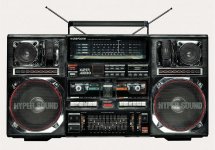So, I ran a search through the forums and couldn't find anything on this topic. If anyone knows if there's already a thread on this, feel free to post a link.
I remember being told a long time ago that all the hours we put into practicing don't mean anything if we don't combine it with a good night's rest, since our brains basically process and organize everything we learn throughout the day. Looking at a few articles, this is especially true for motor control. So, my question is if anyone has any direct experience or knowledge of this as it relates to pool?
I remember being told a long time ago that all the hours we put into practicing don't mean anything if we don't combine it with a good night's rest, since our brains basically process and organize everything we learn throughout the day. Looking at a few articles, this is especially true for motor control. So, my question is if anyone has any direct experience or knowledge of this as it relates to pool?
